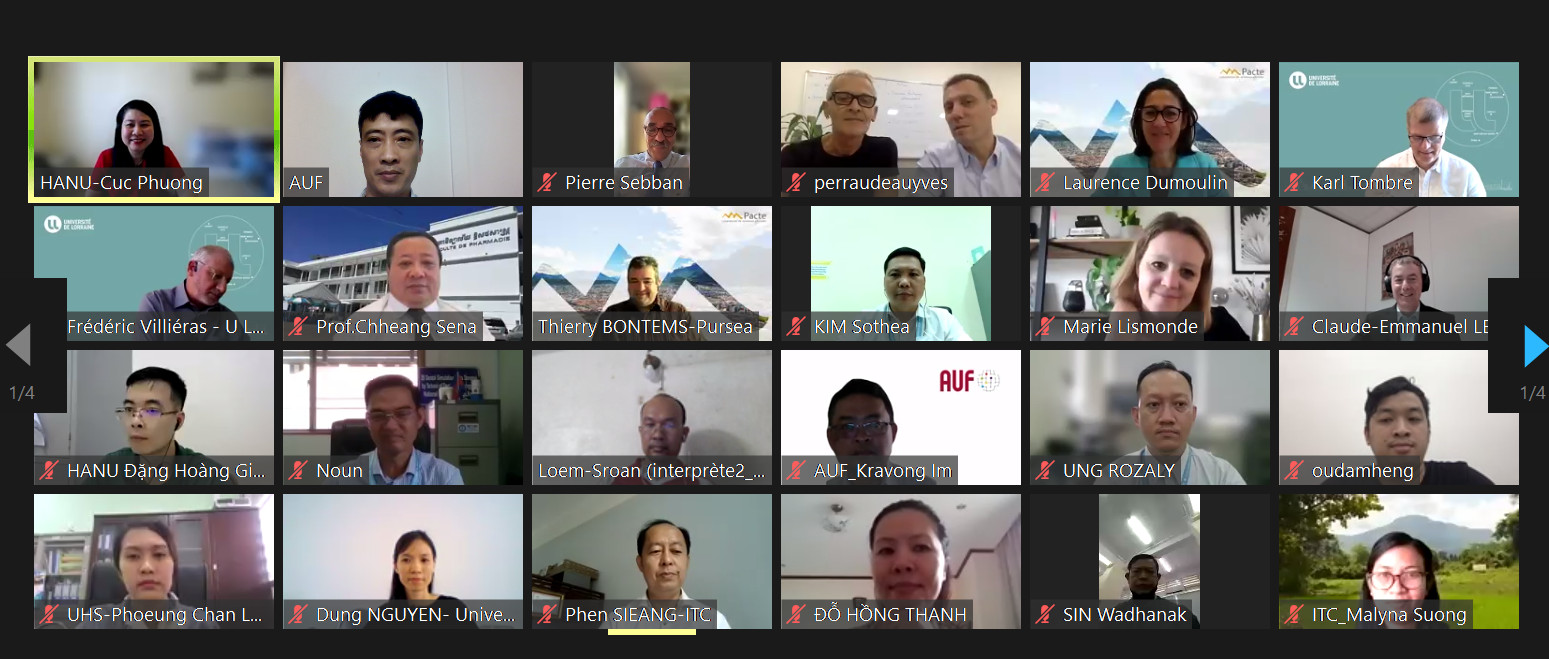With the subject Research laboratory: structuring strategy and management, this round table welcomed 5 speakers from European teaching and research establishments:
● Laurence DUMOULIN: Political scientist, Sociology of public action, CNRS researcher - Director of Pacte, laboratory of Social Sciences in Grenoble, director of the journal Droit & Société
● Pierre SEBBAN: Higher Education Consultant / Full Professor, Paris Saclay University / First Rector of Hanoi University of Science and Technology (USTH), Vietnam
● Karl TOMBRE: Vice-president in charge of European and international strategy at the University of Lorraine, executive director of the initiative and director of ISITE
● Thomas VALLÉE: Attaché for scientific and university cooperation (ACSU), French Embassy (Phnom Penh, Cambodia)
● Frédéric VILLIERAS: CNRS Research Director, Research Vice-President, University of Lorraine
Facilitators of the session were Thierry BONTEMS (Research Engineer at the CNRS, in charge of Strategy and Steering at the direction of the Pacte laboratory, member of the PURSEA project) and Yves PERRAUDEAU (Teacher-Researcher at the University of Nantes, Advisor to the Cambodian Minister of Education, External Expert of the PURSEA project).
During 4 hours of work without a break, the speakers presented to the public valuable information and in-depth answers on 5 themes which are currently attracting a lot of attention and reflection from the academic world, namely:
- The essentials for the structuring of a research laboratory within the framework of an establishment research policy (attractiveness, research theme, multidisciplinarity, structuring of activities, etc.) - Laurence DUMOULIN
- Research funding, diversification of funding sources (state, company, international organization, international partnerships, etc.), project assembly unit - Frédéric VILLIERAS
- Training, research and doctorate link - Thomas VALLEE
- Promotion of research and link with the community - Pierre SEBBAN
- Publication and review, international rankings, research visibility - research evaluation - Karl TOMBRE
The speakers and participants then led very lively and enriching discussions on the rather “burning” questions in research in general and in the management and evaluation of research in particular. In the context where any academic institution, whether European or Asian, public or private, must compete for a better national, regional and international ranking, the international publications and the relevant indexes become the increasingly important and required criteria in every institution, a duty sometimes burdensome for some researchers. They then face the mounting pressure to “publish or perish?”, which leads them to the grueling “race to publish”. Most of the participants in the roundtable, including the heads of universities and research establishments in France, agreed with the idea that apart from publication, there are several methods of evaluating the results of scientific research: publication pedagogical method or syllabus, application of research in daily life or in the economic – social development of the country.
The roundtable ended at 1 p.m. (Paris time) or 6 p.m. (Hanoi and Phnompenh time).


